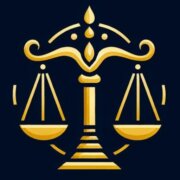Best Drug Crime Lawyers in Limerick
Share your needs with us, get contacted by law firms.
Free. Takes 2 min.
List of the best lawyers in Limerick, Ireland
About Drug Crime Law in Limerick, Ireland
Drug crime is an area of criminal law that deals with the illegal possession, use, supply, or trafficking of controlled substances. In Limerick, Ireland, as in the rest of the country, drug crime is taken very seriously by law enforcement and the courts. The Misuse of Drugs Acts 1977 to 2016 set out the legal framework governing the control of drugs in Ireland. There has been an increased focus on tackling drug-related offences due to concerns about public health and organized crime. Anyone facing allegations or charges related to drug crime in Limerick should be aware that these cases can have significant legal consequences, including fines, imprisonment, and impacts on employment or travel.
Why You May Need a Lawyer
There are several situations where you may require the assistance of a lawyer in relation to drug crime in Limerick:
- You have been arrested or charged with possession of drugs, whether for personal use or with intent to supply.
- You are under investigation for alleged involvement in the sale, distribution, or trafficking of controlled substances.
- The authorities have searched your home, vehicle, or business in connection with drug offences.
- You face charges relating to cultivation or production of plants or substances classified as illegal drugs.
- You are concerned about the legality of prescription medications you have obtained or used.
- Your child or another family member has been charged with a drug offence and you want to ensure they receive proper representation.
- You need advice about the potential consequences of a drug conviction, such as a criminal record or travel restrictions.
A lawyer can protect your rights, provide legal advice, represent you in court, and help achieve the best possible outcome for your case.
Local Laws Overview
Drug crimes in Limerick are prosecuted under Irish national law, primarily the Misuse of Drugs Acts 1977 to 2016 and their subsequent amendments. Key aspects include:
- Controlled Substances: A broad list of drugs is regulated, including cannabis, cocaine, heroin, ecstasy, benzodiazepines, and prescription medications obtained or possessed unlawfully.
- Possession: It is illegal to possess controlled substances without a valid prescription or legal authorization. Even a small amount can lead to arrest.
- Intent to Supply: More serious penalties apply if you are found with drugs in a quantity deemed to be for distribution, or if you are suspected of supplying drugs to others.
- Paraphernalia and Cultivation: It is against the law to possess equipment for the manufacture, planting, or preparation of controlled substances, or to cultivate any plant for the purpose of drug production.
- Sentencing: Penalties can range from fines to lengthy prison sentences. Repeat offences or large-scale supply operations result in more severe punishments.
- Youth Offences: Special considerations may apply if the accused is under 18, though drug charges can still result in serious consequences for minors.
- Discretionary Powers: Gardaí (Irish Police) have powers to search, arrest, and detain individuals suspected of drug offences, but must comply with legal safeguards and procedures.
Anyone facing drug-related allegations in Limerick should seek prompt legal advice to understand the nature of the charges and their rights under Irish law.
Frequently Asked Questions
What constitutes a drug offence in Limerick, Ireland?
A drug offence includes possessing, using, supplying, cultivating, producing, or trafficking in controlled substances or paraphernalia, including unlawfully obtained prescription medications.
Can I be charged for having a small amount of drugs?
Yes, even a small quantity of a controlled drug can lead to a possession charge. The courts may treat first-time, minor offences differently, but it is still a criminal matter.
What happens if I am caught with drugs for the first time?
First-time offenders in possession of small amounts may be eligible for alternatives such as a warning or a caution, but this depends on the circumstances and the type of drug involved. Serious or repeat offences carry harsher penalties.
How are drug trafficking charges different from possession?
Drug trafficking charges involve the sale, distribution, or transport of controlled substances and are treated much more severely under Irish law than simple possession offences.
Can drug offences affect my ability to travel or get a job?
Yes, a drug conviction can appear on your criminal record, potentially limiting travel to some countries and affecting your employment or professional opportunities.
Do the Gardaí have the right to search me or my property?
Yes, Gardaí may search individuals or property if they have reasonable suspicion of drug offences, but such searches must follow legal procedures and you have certain rights during the process.
What should I do if I am arrested for a drug offence?
You should request legal representation immediately, provide your name and address if asked, and avoid answering questions until you have spoken with a solicitor.
Can I get legal aid if I cannot afford a lawyer?
Yes, if you cannot afford a solicitor, you may be eligible for legal aid through the Legal Aid Board, which provides assistance in criminal matters, including drug offences.
Are there different laws for prescription drugs?
Yes, prescription medications are controlled under the Misuse of Drugs Acts. Possessing, using, or supplying prescription drugs without a prescription is an offence.
What if my child is charged with a drug offence?
Minors are subject to the same laws but may be processed through the juvenile justice system, which has some differences from adult proceedings. It is important to seek specialised legal advice for young people facing drug charges.
Additional Resources
If you or someone you know needs more information or support relating to drug crime in Limerick, you may find the following resources useful:
- Legal Aid Board: Provides legal assistance for those who qualify financially, including representation in criminal cases.
- An Garda Síochána (Irish Police): Contact your local Garda station for information on your rights or on crime reporting procedures.
- Citizen's Information: Offers clear explanations of Irish law and your rights regarding drug offences.
- Local Solicitors: Many lawyers in Limerick specialise in criminal defence and can advise on drug law matters.
- Health Service Executive (HSE) Drugs & Alcohol Services: Offers support for health-related issues and advice on substance misuse.
- Youth Justice Services: For matters involving individuals under 18, specialist services are available for legal and rehabilitation support.
Next Steps
If you or a loved one is facing a drug-related investigation or charge in Limerick, consider taking the following steps:
- Remain calm and avoid making statements to authorities until you have received legal advice.
- Request a solicitor as soon as possible, either privately or through the Legal Aid Board if you qualify.
- Gather any relevant documents or information - such as correspondence, prescription details, or records of interactions with authorities - to assist your lawyer in understanding your situation.
- Attend all scheduled legal appointments and court dates. Missing these can have serious consequences for your case.
- If you have health or addiction concerns, seek support from the HSE or local drug and alcohol services.
- Stay informed about your rights and responsibilities throughout the process by consulting with your lawyer regularly.
Facing a drug crime allegation can be daunting, but with timely and expert legal assistance, you can better understand your options and work towards a fair resolution.
Lawzana helps you find the best lawyers and law firms in Limerick through a curated and pre-screened list of qualified legal professionals. Our platform offers rankings and detailed profiles of attorneys and law firms, allowing you to compare based on practice areas, including Drug Crime, experience, and client feedback.
Each profile includes a description of the firm's areas of practice, client reviews, team members and partners, year of establishment, spoken languages, office locations, contact information, social media presence, and any published articles or resources. Most firms on our platform speak English and are experienced in both local and international legal matters.
Get a quote from top-rated law firms in Limerick, Ireland — quickly, securely, and without unnecessary hassle.
Disclaimer:
The information provided on this page is for general informational purposes only and does not constitute legal advice. While we strive to ensure the accuracy and relevance of the content, legal information may change over time, and interpretations of the law can vary. You should always consult with a qualified legal professional for advice specific to your situation.
We disclaim all liability for actions taken or not taken based on the content of this page. If you believe any information is incorrect or outdated, please contact us, and we will review and update it where appropriate.










